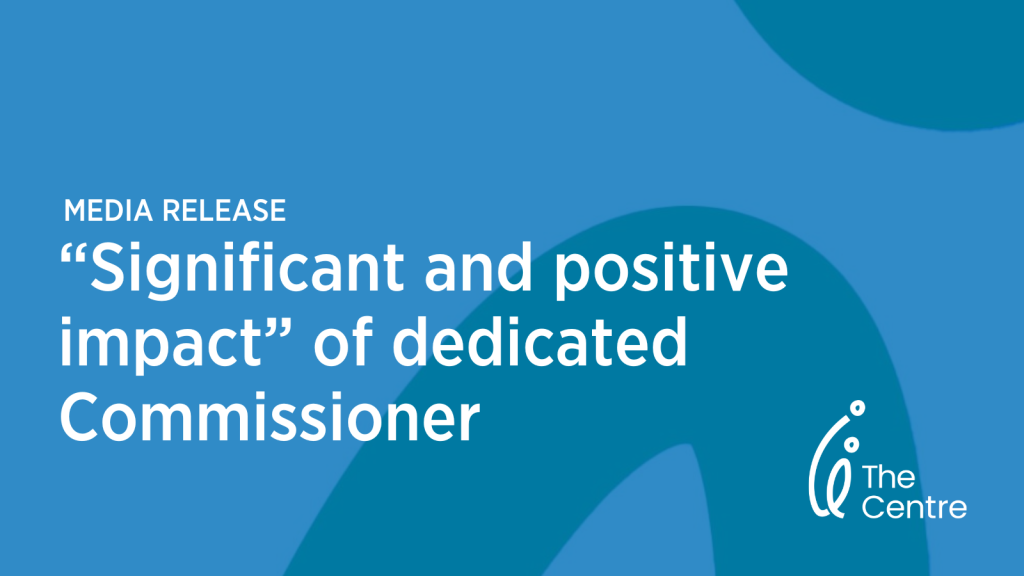The announcement of a National Commissioner for Aboriginal and Torres Strait Islander children will have a “significant and positive impact” on the lives of children and young people, says the Centre’s CEO Deb Tsorbaris.
The Centre and its members have long advocated for this appointment, supporting the SNAICC Options Paper released in November 2020 and campaigning alongside ACCOs for the appointment.
The 2023 Family Matters report says: “The most effective and immediate action the government can make to ensure the safety and protection of our children is to stand up a National Aboriginal and Torres Strait Islander Children’s Commissioner, with the legislated power to investigate and make recommendations on issues impacting our children.”
Ms Tsorbaris says a federal Commissioner builds on the increasing recognition across Australia of the importance of a dedicated Commissioner role. In Queensland, a commissioner was appointed in 2020. Victoria established its commissioner in 2013 and South Australia in 2018.
“In Victoria, the work of the Commissioner for Aboriginal Children and Young People has led to major government reforms and an increased focus on improving outcomes for our children,” says Ms Tsorbaris.
“We desperately need to focus on the rights of Aboriginal and Torres Strait Islanders children and young people and this Commissioner is a vehicle to get the urgent attention needed on issues such as overrepresentation in youth justice and out-of-home care.”
The Albanese Government announced the appointment following the release of the latest Closing the Gap report, which shows only four of the 19 socioeconomic targets are on track and some targets, including children’s development were worse.
The review report focuses on three socio-economic targets– overrepresentation in youth justice, overrepresentation in out of home care, and family and household safety, which Ms Tsobaris says will be a key focus for the new Commissioner.
It found that despite only making up 6 per cent of the Australian population between 10–17 years old (from June 2018 to June 2022), Aboriginal and Torres Strait Islander people represented 56 per cent of all young people in detention in the June quarter of 2022 (AIHW 2022). This is an increase from the previous year (23.4 per 10,000 young people) but a decrease from 32.0 per 10,000 young people in 2018-19 (the baseline year).
The out of home care target remains off track and is worsening nationally. At 30 June 2022, the rate of Aboriginal and Torres Strait Islander children aged 0–17 years in out-of-home care was 56.8 per 1,000 children in the population. This is an increase from 54.2 per 1,000 children in 2019 (the baseline year).
Progress against this target varies across jurisdictions. Victoria and South Australia have the highest rates of Aboriginal and Torres Strait Islander children in out-of-home care (102.2 and 92.7 per 1000 children respectively) and these rates have increased substantially since 2019. The rate is also worsening in Queensland and Tasmania.
There continued to be significant issues with data on family safety in Aboriginal and Torres Strait Islander communities with significant underreporting leading to an inaccurate picture of prevalence and incidence. A submission to the review from Djirra says “more than 90 percent of the violence our women experience goes unreported.”
Ms Tsorbaris says a national Commissioner will ensure more effective collaboration and coordination between and within government and be able to investigate and report publicly and independently from Government on issues that affect Aboriginal and Torres Strait Islander children and young people.
“It really is a game changer to have a national advocate representing the needs, rights and views of Aboriginal and Torres Strait Islander children and young people to ensure they thrive into the future,” she says.
More information






